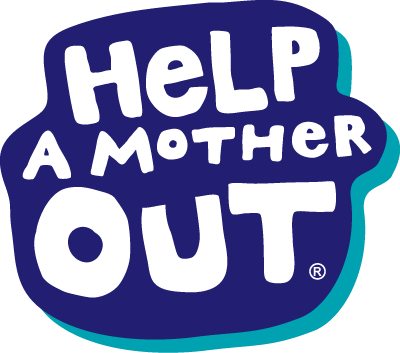This is a repost of my guest post for Poverty Insights earlier this week. I’m thrilled to be at the BlogHer conference today soaking up the information and bloggy energy. Of course, I’m also there to talk about diapers. Are you there too? Please stop by the Huggies Every Little Bottom booth (#2713) in the Expo Hall and say hi! Would love to meet you!
Any parent will tell you it is a terrible inconvenience to run out to the drugstore late at night because you ran out of diapers. But this occasional inconvenience is nothing compared to the crisis unfolding across the nation for families who are unable to provide their children with an adequate supply of diapers.
The Social Safety Net Does Not Include Diapers
For qualifying households, safety net programs such as the Supplemental Nutrition Assistance Program (SNAP) and the Women, Infants, and Children program (WIC) help supplement food, including infant formula. Unfortunately, no state or federal safety net program addresses the basic need of diapers.
It can take an average of $1,100 a year to adequately diaper a baby. And while cloth diapers are an option for more affluent households that are capable of maintaining them– the truth of the matter is that there exists a huge diaper divide with families living in crisis. Most families living in poverty lack access to affordable laundering facilities, as well as the start up costs associated with cloth diapering.
The Great Recession has amplified the numbers of families who are unable to meet this basic need. Even during boom times, families in need were forced to make impossible choices for their children; having to choose between items like food, medicine, diapers, or utility bills. “Diapers are a must-have. You can’t skip them like you can breakfast,” explained one struggling California mother.
Keeping Children Healthy, Helping Families Become Self Sufficient
Every baby deserves a clean diaper. Children left for extended periods of time in dirty diapers are at a higher risk for health problems including severe diaper rash, urinary tract infections, jaundice, and even staph infections. Babies left in soiled diapers are more likely to cry from discomfort, which can increase caregiver stress and parental depression. In extreme cases, this type of stress on a family unit may lead to child neglect and abuse.
Lacking a steady access to diapers may also result in a family’s inability to participate in childcare programs, school, and even regular employment. We know that early childhood learning and development are critical to at-risk children.
The majority of early care and education programs, including free or subsidized programs like Early Head Start, require parents to provide disposable diapers prior to entering the program. If a caregiver is unable to meet this requirement, they may not be able to participate in regular employment or job training programs – essential factors in a family’s ability to be self sufficient.
The Long View: Changing Public Policy
The Diaper Bank, a non profit that centralizes fundraising for and distribution of free diapers to poor families in Connecticut distributes over 200,000 diapers per month to human service agencies. In recent years several grassroots organizations have sprouted up across the country in order to address this issue at local levels, primarily through charitable giving.
Recently Kimberley-Clark, a major diaper manufacturer, launched a campaign to address this issue from a commercial stand point. The number of families who have been helped by these collective efforts is astounding and truly awesome.
However inspiring these efforts are, they are a drop in the bucket in terms of addressing diaper needs at the national level. Charitable giving is, at best, a short term solution. In the long term it is essential for advocates of women and children, as well as advocates working to end hunger, poverty, and homelessness, to raise awareness and collectively advocate for the addition of diapers and other hygiene items in the safety net.
The addition of diapers must be codified into the fabric of social safety net programs. If we can ensure that a baby cries less, reduce caregiver stress, and enable families to achieve self sufficiency, we can change the world. Even with something as basic as diapers.

